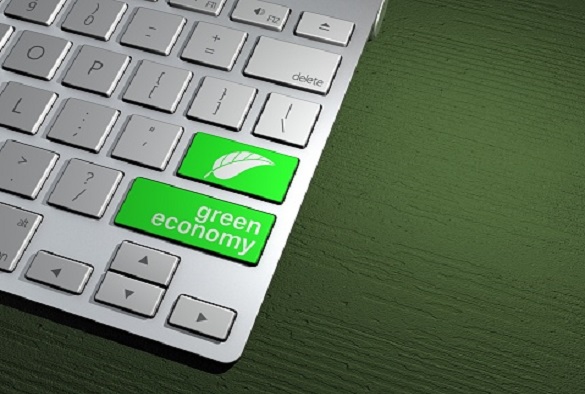This month marks the ten year anniversary of the University supporting the growth of the region’s green economy.
Over this period, a series of business support progammes, all funded through the European Regional Development Fund, have helped businesses in the region develop low carbon strategies, technologies, processes and skills through developing close collaborative interactions with the University and other universities in the region.
The programmes have a track record of expertly matching the needs of each business with the relevant University support designed with commercial outputs as the primary driver.
The support provides direct access to knowledge, skill and facilities and could involve a PhD project, Masters project or dissertation and internships.
Centre for Global Eco-Innovation
In 2012, the Centre for Global Eco-Innovation (CGE) was the first programme to support businesses in the North West develop innovative low carbon projects through collaborative research partnerships with universities.
LCEI
Building on the success of the CGE, the Low Carbon Eco-Innovatory (LCEI) launched in 2015 using the same successful model as CGE but with the added support of Liverpool John Moores University.
Eco_i North West
Following on from the CGE and LCEI, the Eco-I North West programme launched in 2020 to support businesses in the North West from any sector with low carbon projects through collaborative partnerships with five North West Universities with the University of Cumbria and Manchester Metropolitan University now joining the three partner universities in the LCEI.
Outputs
In total these two programmes supported over 700 SMEs, created over 300 jobs, development of more than 120 new low carbon products and services and added £45 million gross GVA to the low carbon economy in LCR and the North West.
Benefits to business
One of the aims of the programmes was to encourage businesses to maintain a broader, long-term relationship with the city region’s research base. Here is an example of one company that has now developed a ten year relationship with the University.
Marlan Maritime Technologies is a Merseyside SME dedicated to enhancing safety and security in maritime environments.
Its relationship with the University started through the CGE with a PhD studentship to work on project relating to remote sensing services for the survey of intertidal zones.
Cai Bird undertook this PhD studentship and through the success of his project, Marlon Maritime Technologies were able to secure a Knowledge Transfer Partnership that enabled Cai to further develop this project and help the company expand its portfolio.
PhD Studentships
A total of 67 PhD students have been funded by the three programmes at the University of Liverpool over the past ten years.
The projects provide PhD students with valuable experience in delivering commercial research to solve real-life issues at all levels enhancing their skills, knowledge and employability.
Studentships have covered many sectors and many types of projects. For example, Liuying Li helped local company Gencoa Ltd develop a controller to improve the efficiency of wind turbines.
Jan Mary Baloyo worked with Versarien Plc to develop the Lost Carbonate Sintering process for manufacturing porous metals with novel structures.
Francis Baumont De Oliveira collaborated with Farm Urban, a local social enterprise to explore the economic and environmental sustainability of vertical farms in urban contexts.
Award winning
The programmes have been recognised for their success and achieved a number of awards including winning the 2015 Green Gown Awards `Research and Development’ category as well as a prestigious national award, the ‘Outstanding Knowledge Exchange and Commercialisation Initiative’ category at RCUK/Praxis Unico Impact award. They also secured a Mersey Maritime Environmental Award in 2020.
The Innovatory
Now celebrating its tenth year of these programmes, the University is assisting local businesses through The Innovatory which provides support for businesses across any sector.
Dr Matt Fulton has been in charge of the University projects since their inception in 2012. He said: “The three programmes are an exemplar of business support for the green economy and through funding 67 PhD projects, 15 Masters and numerous internships and industrial dissertation projects here at the University of Liverpool we have helped to increase jobs, inward investment and to develop new products, processes and services for hundreds of SMEs in the region. I look forward to continuing this activity and providing support to more business sectors through The Innovatory.”
For further information on The Innovatory and the support the University can provide local business, please visit this webpage.
The Low Carbon Eco-Innovatory will deliver a specialist business support clinic at ‘The Good Business Festival (TGBF) which takes place from 22 – 24 March 2022. You can register for free here.
TGBF is focused on helping companies of every size and interest become more competitive and future-proof themselves by doing the right thing.
.
